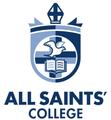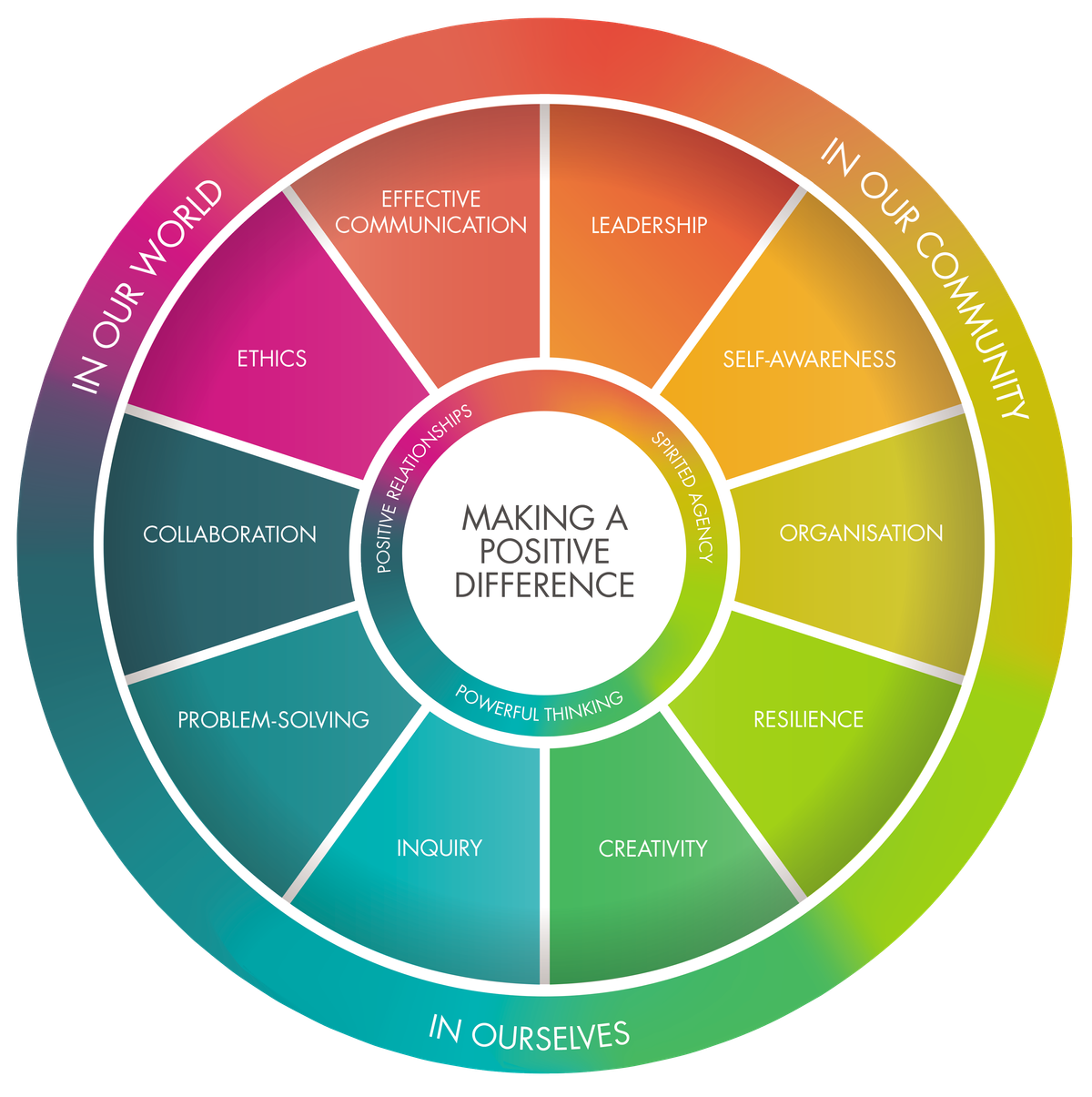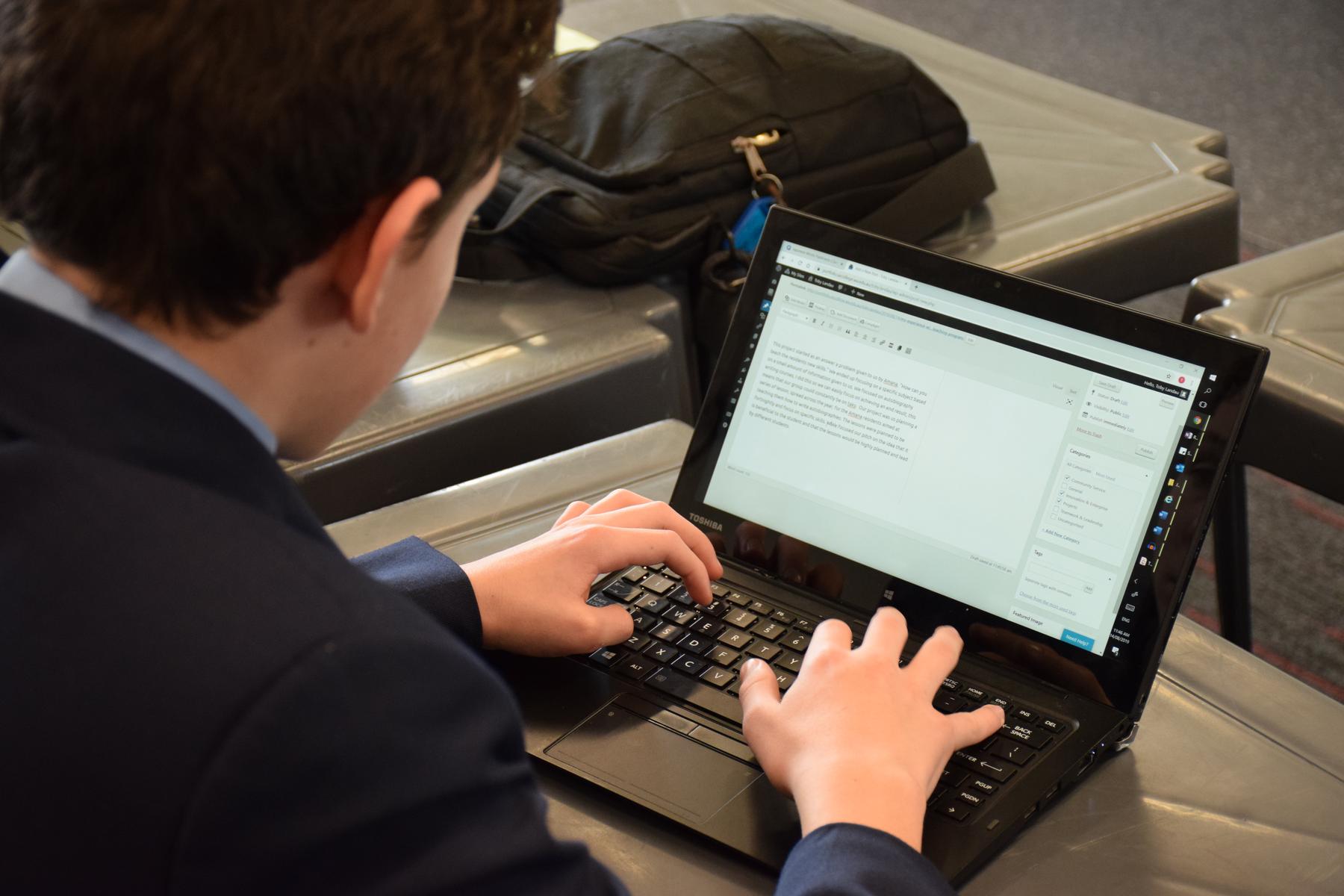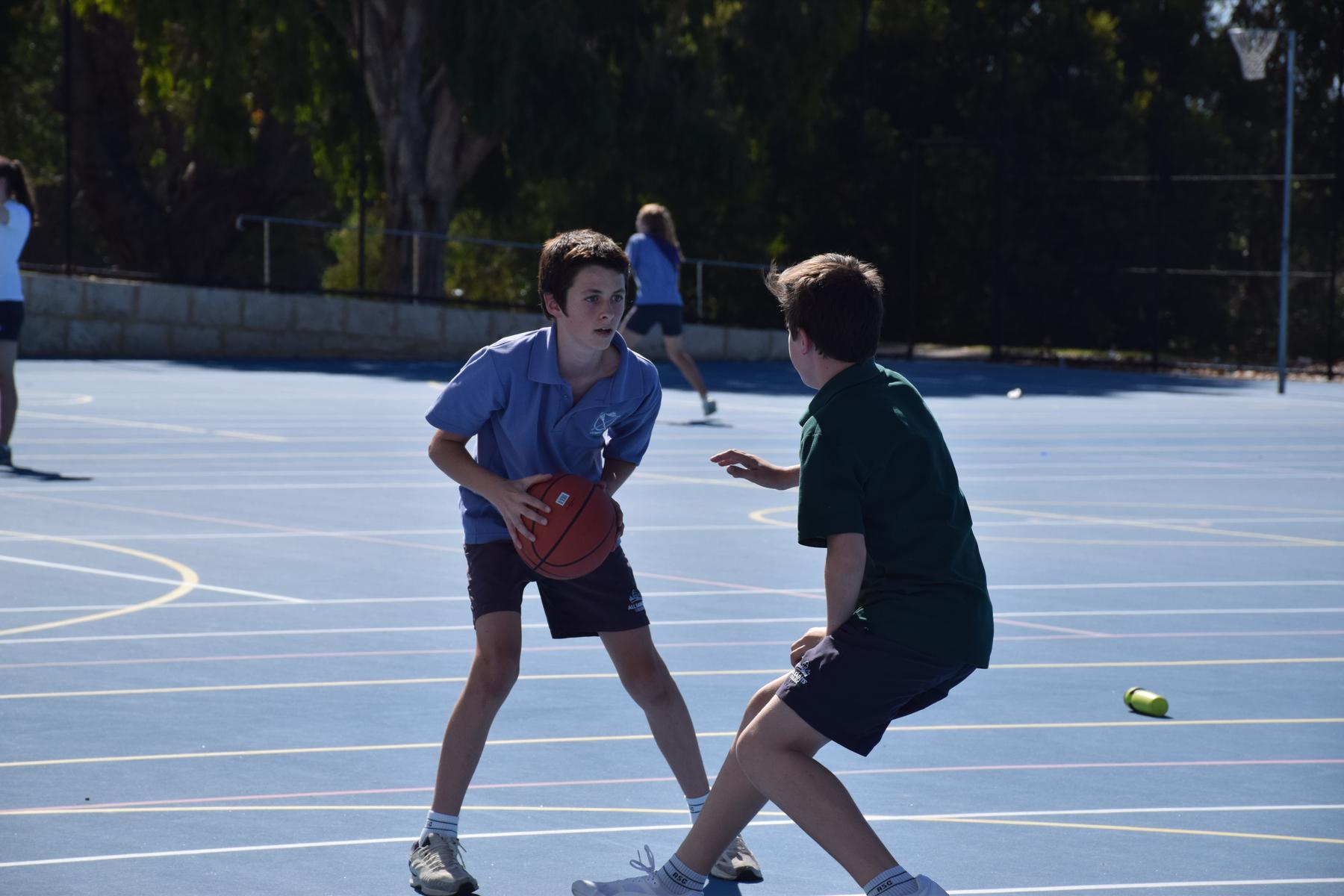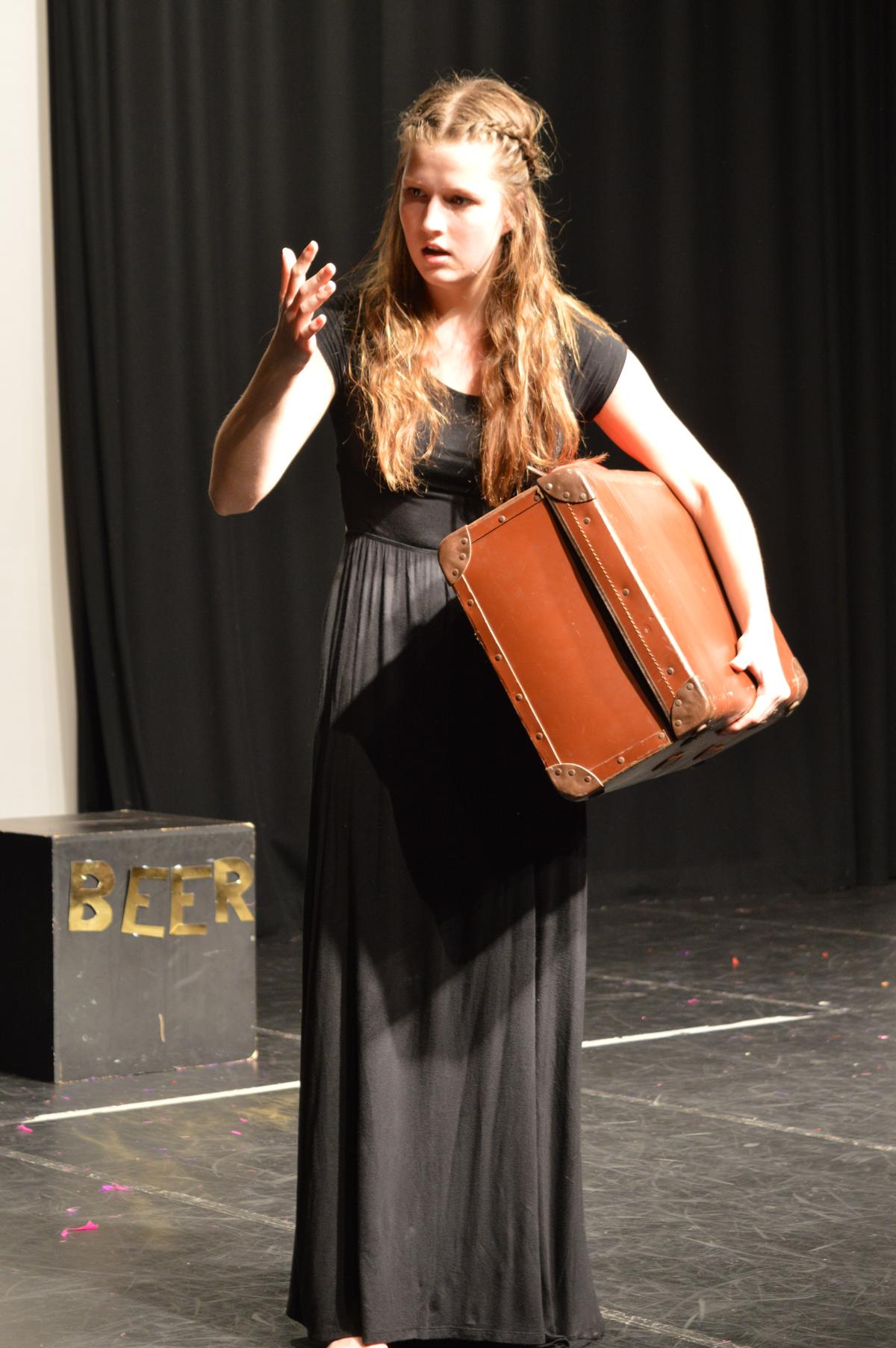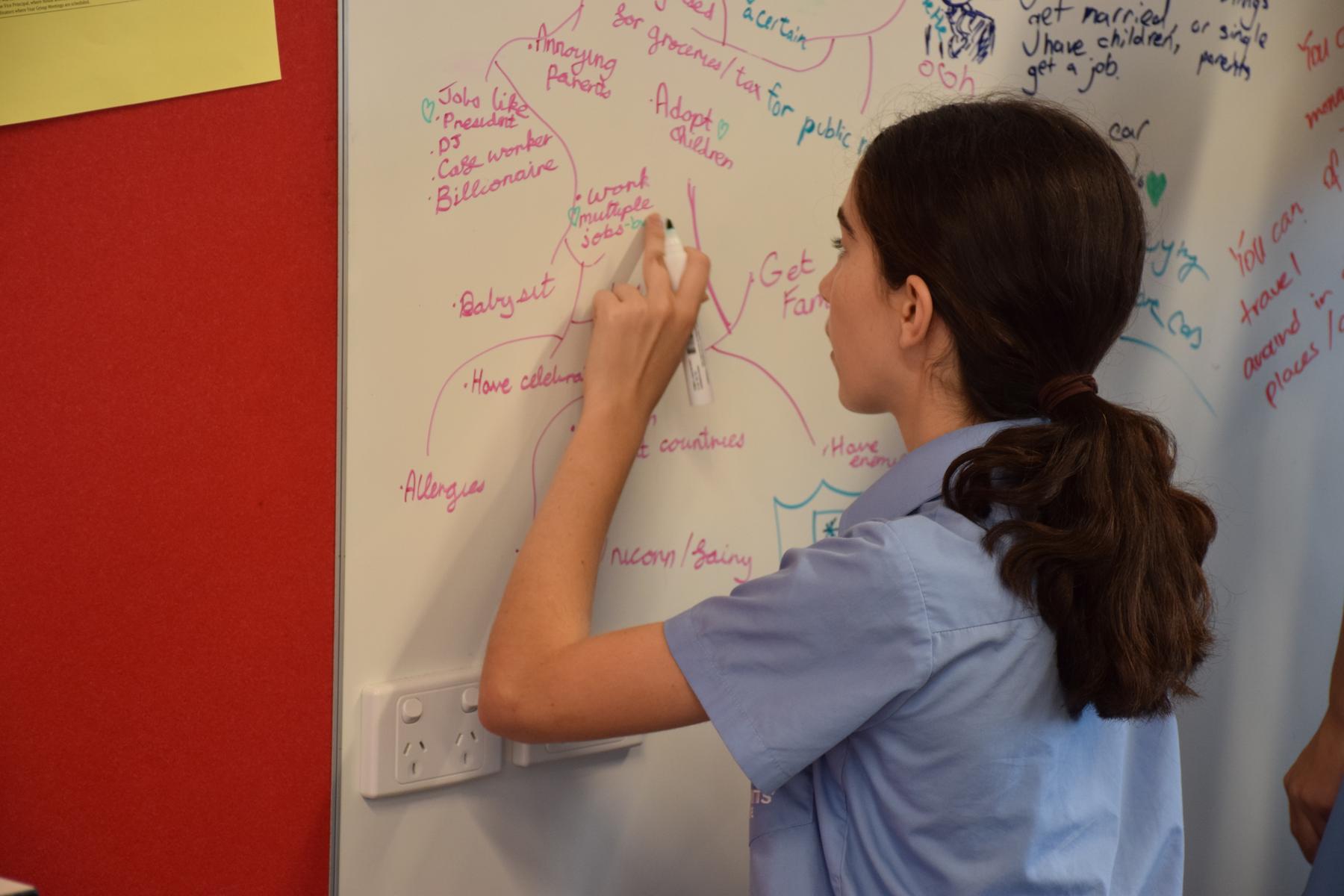Year 7 Curriculum
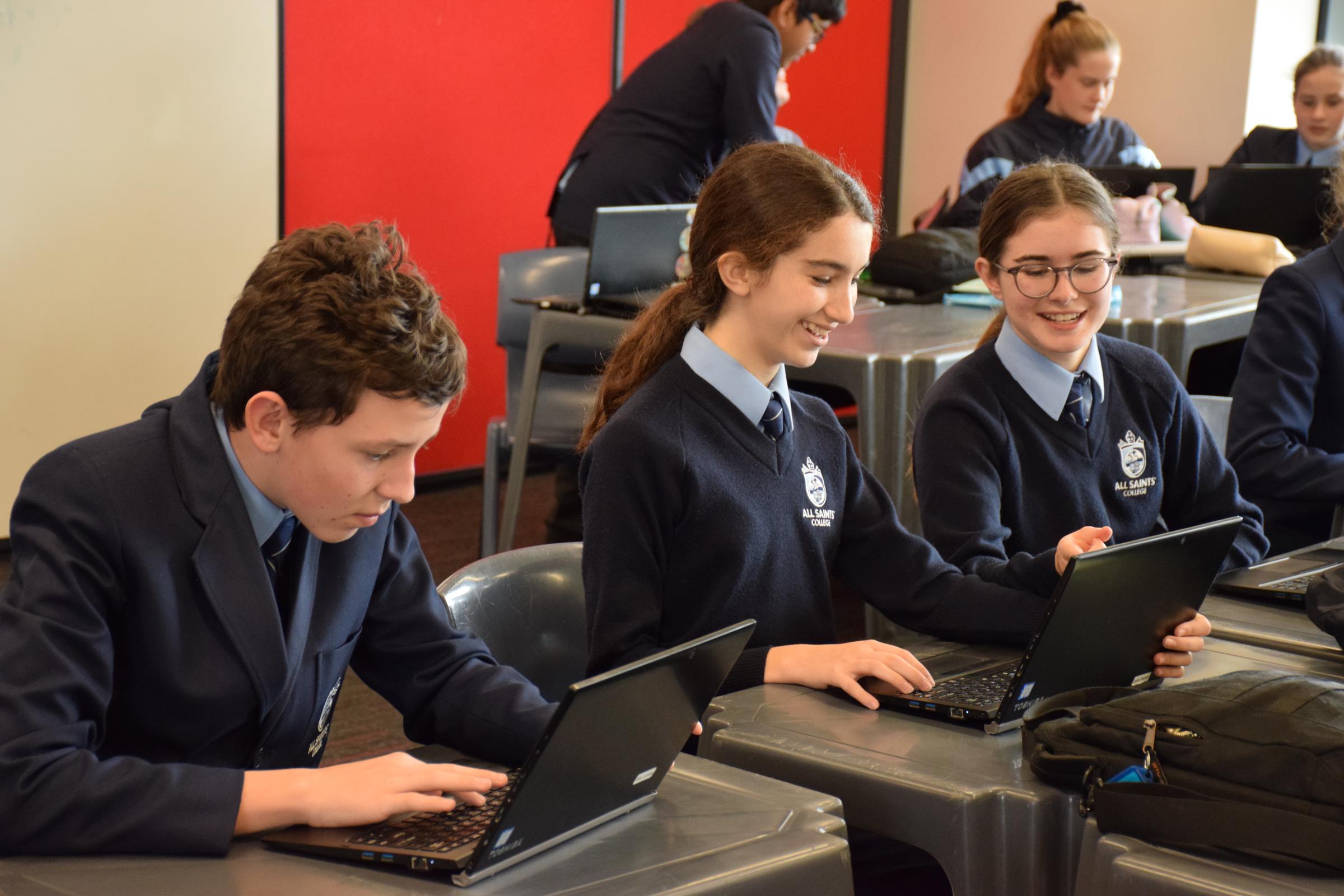
Times of the day
Each day begins at 8.30am with Tutor Group where attendance is noted, messages are given and students are reminded of things happening during the day and week. The school day concludes at 3.25pm. There are 6 x 55 minute periods in a day.
If a student arrives at school after Tutor Group or leaves before 3.25pm, they are required to check in or out through Student Services.
The Learning Program
Students follow a program that exposes them to the different Learning Areas using the Western Australian Curriculum. It provides them with a strong foundation in the knowledge, skills and strategies required in later studies. Our aim is for students to have a wide variety of experiences in Years 7 and 8, which will help them to make informed decisions about pathways they will take in subsequent years. In Years 9 and 10 students can choose from exciting elective possibilities ranging from Photography to The Arts, from Languages to Outdoor Education.
Students are encouraged to develop independence in and responsibility for their learning during Years 7 and 8 and focus on the development of core capabilities as outlined in the College's Capabilities Framework below. The delivery of the curriculum is supported by dynamic practices of peer collaboration, integration and direct teaching.
Year 7
The Year 7 curriculum highlights the five capabilities of; Organised, Inquisitive, Collaborative, Problem Solving, and Resilient. Through a series of developmental programs that are underpinned by the Learning Areas, students explore their personal learning style, examine their values, and engage with the broader community to develop the skills for success, along with an understanding of their own ethical and social responsibilities.
The academic program embraces all Learning Areas, and students are able to access a number of the specialist areas and teachers in the Senior School. Numeracy and literacy are given special focus, and support and extension teachers help to cater for ability levels in these areas. Homework help is available after school from a Year 7 teacher one afternoon per week.
Feedback on student progress is directed through SEQTA and formal reporting. SEQTA provides an ongoing reflection of a student’s development and progress in the curriculum Learning Areas. Formal reports are sent out at the end of Semesters 1 and 2. Towards the end of Term 1 there is a three-way transition interview (parent, class teacher and student) with an emphasis on the child’s working habits and social development. Three-way Interviews at the beginning of Term 3 provide an opportunity to focus on academic goals.
English
Year 7 English covers the three English strands – Language, Literature and Literacy. There is a strong emphasis on literacy, with a focus on language conventions such as grammar, punctuation, word skills, sentence and paragraph construction, as well as reading comprehension and spelling rules. Students learn about the conventions used in the Persuasive, Imaginative and Informational text types, with tasks that aim to capture their imaginations and allow them opportunities to apply their knowledge through creating their own written and spoken texts.
Extension opportunities are available in English, both in the classroom due to the nature of a number of the more open-ended tasks, and also through withdrawal of students to extend their interests and abilities. Small-group help for students focusing on literacy development is also available.
Students are also taught public speaking and debating skills and use these in the classroom, as well as in interhouse and interschool competitions.
Humanities and Social Sciences (HASS)
There are four key areas in Humanities and Social Sciences (HASS):
- History
- Geography
- Civics and Citizenship
- Economics and Business
History explores features of the ancient world and examines the use of historical sources and the importance of conserving our ancient past. The case study examining the society of Ancient Greece will focus on aspects such as factors that influenced the development of the civilisation, key groups, beliefs and practices, significant individuals, and the impact of the civilisation in our society today.
Geography focuses on ‘Water in the World’ and ‘Place and Liveability’. ‘Water in the World’ looks at water as a precious resource, inequality of access to water and the causes, overcoming water scarcity, and Australia’s water future. ‘Place and Liveability’ compares factors influencing where and how people live, examining strategies to enhance the liveability of places.
Civics and Citizenship focusses on the design of our political and legal system. Students will learn about the Australian Constitution, the powers of Government, and the participation of citizens in the legal process (eg witnesses, jurors, and the concept of presumption of innocence).
Economics and Business examines business, consumer, producer and market demands, as well as the characteristics of entrepreneurs. Students will explore the concepts of innovation and enterprise, examining various ways in which people can derive an income.
Mathematics
The Year 7 Mathematics program aims to develop a strong understanding of the essential basic concepts. It then expands on these in applicable real-life situations. Lessons are dynamic and are based around a combination of concrete examples, bookwork, discussions and interactive programs on the computer. They generally involve whole-class explanations, group work and individual discovery. Each term the work covered seeks to build on the students’ existing experience and to challenge them to think further.
The Mathematics Program for Year 7 students includes work from the strands:
- Number and Algebra
- Measurement and Geometry
- Statistics and Probability
The Year 7 Mathematics classes are streamed according to ability. The classes take place at the same time, which provides great flexibility in allowing the movement of students between classes based on their performance. Students who perform very well can be moved to a class being taught at a more accelerated level, while students who are struggling can be moved to a class more suited to their pace of learning. Support is provided in the smaller Group 6 class to enable students to progress in line with their ability, with students in all classes learning the same content, but to a different depth.
Students are placed in one of the six classes in Year 7 in Term 1. The decision on grouping is determined by their level of achievement in the entry tests administered during the first two weeks of Year 7 and their performance during Mathematics classes. A select group of Year 7 students may be identified for further extension on the basis of testing done early in the school year and teacher input. The extension program is rigorous and involves participation in a number of external competitions. It is the responsibility of the student to keep up with classroom work.
Science
The Year 7 Science course is designed to include the Science Understanding concepts outlined in the Western Australian Curriculum:
- Chemical Sciences – differences between pure substances and mixtures; parts of a solution; physical separation techniques.
- Biological Sciences – principles of classification; biological classification; using classification keys.
- Physical Sciences – effects of forces; balanced and unbalanced forces; gravity as a force.
- Earth and Space Sciences – phenomena caused by the positions of the Earth, Moon and sun; renewable and non-renewable resources; water cycle
Throughout the year students are also introduced to the Science laboratory and its equipment, safety procedures and Science Inquiry skills.
Languages
The College offers two languages: French: Second Language and Chinese: Second Language. Prior experience in the language chosen is not necessary as some students begin Year 7 with proficiency in other languages and bring existing language learning strategies and intercultural awareness to the new experience of learning French or Chinese.
Every Year 7 is asked to choose their Language before they commence at the College. They receive notification of their language allocation when they are given their House and class allocation before Orientation. Students continue with the same Language in Year 8.
French
The Year 7 course builds students’ French skills through topics such as Self-introduction, Feelings, Friends and Opinions. Students acquire the basic vocabulary and grammatical structures to interact with others for the purpose of participating in class routines and socialising. Discovering and understanding how words, gestures and contexts are linked, students develop an awareness of the cultural and linguistic aspects of the target language. Throughout the course, students engage with imaginative and creative texts such as stories, poems, songs and cartoon to demonstrate evidence of their speaking, reading, listening and written skills.
Chinese: Second Language
Year 7 Chinese: Second Language builds on the skills, knowledge and understanding of students to communicate in the Chinese language through exploring topics such as Family and Home, Hobbies, School and Food and Drink. Skills in analysing, comparing and reflecting on language and culture in both English and Chinese languages are mutually supportive and encouraged. Students will also benefit from a range of enriching experiences both inside and outside of the classroom as they engage in interactive activities and incursions. Students and parents need to be aware that Year 7: Chinese Second Language is designed for second language learners. Second language learners are students who have typically learnt everything they know about the language and its culture through classroom teaching in an Australian school or similar environment, where English is the language of school instruction. They also do not use the language for communication outside the language classroom and are not exposed to the language outside the language classroom.
Physical Education
Throughout Year 7 students develop and refine specialised movement skills, and focus on developing tactical thinking skills in a range of contexts, applying them to physical activities. They have opportunities to analyse their own and others’ performance using feedback to improve body control and coordination. They learn about health-related and skill-related components of fitness, and the types of activities that improve individual aspects of fitness. The application of fair play and ethical behaviour continues to be a focus for students as they consider modified rules, scoring systems and equipment, which allows participants to enjoy physical activities and experience success. They begin to link activities and processes to the improvement of health and fitness.
The Health and Physical Education curriculum provides opportunities for students to develop, enhance and exhibit attitudes and values that promote a healthy lifestyle.
All Year 7 students participate in Physical Education for two periods per week. In 2021 students will have the opportunity to acquire and develop skills in the following units (subject to change):
- Swimming starts and relay changeovers, Soccer, Water Polo, Basketball, Handball, Modcrosse, Athletics, Touch Football, Tennis, Fitness Testing.
Health
In Health Education students develop the knowledge, understanding and skills to make decisions and take action to strengthen their sense of personal identity and autonomy, build resilience, manage risk and develop satisfying, respectful relationships.
Through Health Education students learn how to enhance their health, safety and wellbeing, and to contribute to building healthy, safe and active communities. It provides opportunities for students to develop skills, self-efficacy and dispositions to advocate for and positively influence their own and others’ health and wellbeing.
The Year 7 and 8 Health Education programs aim to provide students with practical and relevant information regarding safety and healthy lifestyle practices. The program is interactive in its delivery, allowing students to be active, engaged and practical in their approach towards the subject.
Religion and Philosophy (R&P)
As Year 7 students transition into Senior School, the time in R&P is used to consider what it might mean to be made in the image of God and what responsibility comes with this understanding. The issues of choice, purpose and meaning are explored, along with the concept of what or who is the Christian God. The books of Genesis and Exodus are central to this thinking, each showing different glimpses of good and evil, compassion and understanding, purpose and meaning.
The Prince of Egypt and Evan Almighty are viewed to help develop the students’ understanding. During the year students are challenged to formulate their own position on a number of subjects and are encouraged to present sound arguments for their opinions. In response to some of these ideas, the Bible is examined, looking at when, where and why it was written, while learning how to use its referencing system. A short period of each lesson is also devoted to Stillness and Silence. This is a time when students learn that, as they move through Senior School, their R&P classes will prepare them for more challenging religious and philosophical thought, where they formulate their own lifelong ethical and spiritual stances.
Design and Technologies
All students complete a full year of Digital Technologies and rotate through a semester of Food Technology and a semester of Materials (Textiles context). The design process is fundamental to this learning area and an integral component of the achievement of all outcomes. Through this process students are encouraged to investigate and research, develop ideas to devise a range of solutions, select and produce a solution, and evaluate both the results of their endeavours and the process they adopted.
Problem-solving skills, critical thinking and individual expression are central to the delivery of the curriculum in this Learning Area.
The Arts
Project X is a course that allows students at All Saints’ College to specialise in areas of The Arts whilst also collaborating in a broader Arts context. Project X is a two-year course that offers a strong platform from which our students can grow and develop with an agile mind and keenness to engage in effective, creative Arts practice with confidence in the future.
Rather than offer traditional classes such as Drama, Dance, and Visual Art, Project X will offer a range of ‘experiences’ that will be far more specific and specialised. Students will also have opportunities to experience art in a real-world context.
The classes also provide a springboard for further cocurricular programs that are accessible throughout the year in Dance, Drama, Media, Visual Art and Music. There are opportunities to publicly demonstrate emerging talents through several performances and concerts.
Individual instrumental and vocal tuition at the College can be arranged through the Music Department. At Orientation each student will receive a note introducing this program. Further information can be obtained from the Music Office (music@allsaints.wa.edu.au).
Connected Learning
Connected Learning is designed to help students develop skills for life and learning, providing space for students to engage in inquiry-based, cross-curricular learning experiences. Lessons take place twice per week, dedicated to developing and building key capabilities that students will be able to draw upon in the years to come. Issues such as making friends, building resilience, time management and organisation, and seeking help are explored through a variety of projects, activities and discussions.
The Connected Learning lessons also explore Stephen Covey’s 7 Habits, supporting The Leader in Me program, along with other essential Thinking Skills. The aim of this program is to equip students with relevant skills and empathy, so that they are able to develop into more socially and emotionally intelligent members of society who know how to become leaders in their own lives.
Innovat[ED]
This curriculum recognises the role and importance of creativity and innovation, and of developing the skills needed to tackle a rapidly changing world. An emphasis on Design Thinking and skills in rich contexts will allow students opportunities to apply their knowledge to and innovate around real-life problems. Students will develop their technical and thinking skills whilst engaged with Design, Technology, Visual and Performing Arts through Creative Design projects.
